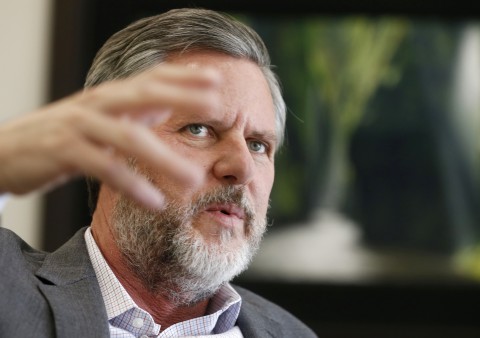After report on Falwell, Liberty University students organize campus protest

In the wake of reports alleging objectionable rhetoric and conduct by Liberty University president Jerry Falwell Jr., about 200 students at the evangelical Christian school gathered at a protest on campus on September 13. Student organizers estimated that about 60 of the demonstrators were there to demand an investigation of the president and his administration.
“We are not calling for Falwell to resign right now,” said Elizabeth Brooks, a sophomore at the school and the main organizer of the protest. But in a mission statement, Brooks wrote that the official position of the demonstration is to “bring to light the truth of these allegations of various misconduct.”
Brooks did not elaborate on the allegations, only stating that the protest comes in response to an article by Brandon Ambrosino that appeared in Politico that quotes current and former members of Falwell’s “inner circle” describing Liberty as a “dictatorship” and more of a “real estate hedge fund” than a university.





